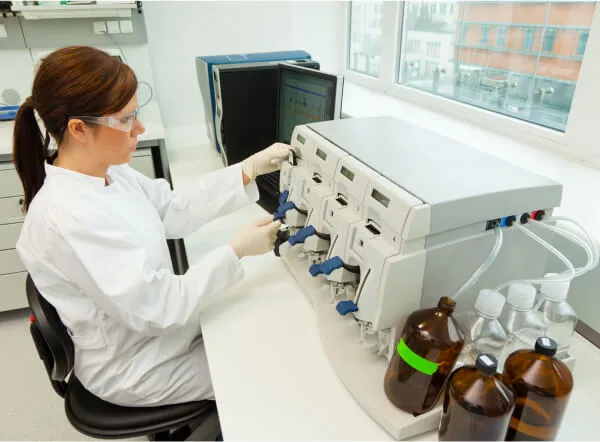Developmental Biology and Embryology

Developmental biology is the study of the progress of cells into complex living organisms, while embryology focuses on early stages of cell development. Learn about academic programs, job prospects and salary data for these fields.
<h2 id="section---AreStudiesInDevelopmentalBiologyAndEmbryologyForMe">Are Studies in Developmental Biology and Embryology for Me?</h2>
<h3 id="section---CareerSummary">Career Summary</h3>
<p>All organisms start as cells and continue to grow, multiply and develop tissues. The study of this process is called developmental biology, a biological specialty concerned with <a href="https://learn.org/articles/Embryology_Schools_and_Degrees_Answers_to_Your_Questions.html">cell development</a> at all stages of life. As an aspiring developmental biologist, you can study how cells communicate with each other, the use of stem cells in cloning, mechanisms of speciation and gene therapy. Embryology is a sub-discipline of developmental biology that deals with the formation of cells during the early stages of embryo development, such as in the womb, seed or egg.
</p>
<h3 id="section---EmploymentOptions">Employment Options</h3>
<p>Careers within the developmental biology and embryology fields vary, but you'll most often find positions within the areas of research, consulting, teaching and medicine. You can pursue a research career within government and academic institutions. If you focus on medical or <a href="https://learn.org/articles/Clinical_Embryologist_Jobs_Frequently_Asked_Questions.html">clinical embryology</a>, you might find a job in infertility research, gynecology practice, obstetrics or another health profession. Careers within the biotechnology and agricultural industries are also possible. You can find additional employment opportunities within the areas of cell biology, biochemistry and pharmaceutical research, for example.
</p>
<h3 id="section---JobOutlookAndSalaryStatistics">Job Outlook and Salary Statistics</h3>
<p>The U.S. Bureau of Labor Statistics (BLS) projected jobs for biochemists and biophysicists, a larger occupational grouping that includes embryologists, would grow at a rate of 19% for the 2012-2022 period (<i>www.bls.gov</i>). The BLS reported that expected job growth is partly due to a growing need to understand how genes function and how this knowledge can be applied to the medical, biotechnology and agricultural industries. According to <i>Payscale.com</i>, <a href="https://learn.org/articles/Embryologist_Your_Career_and_Salary_Questions_Answered.html">embryologists</a> in the 10th-90th percentile reported earnings of $35,946-$92,104 as of March 2014. Therefore, earnings in this field are varied but can be lucrative.
</p>
<h2 id="section---HowCanIWorkInDevelopmentalBiologyAndEmbryology">How Can I Work in Developmental Biology and Embryology?</h2>
<h3 id="section---EducationPrograms">Education Programs</h3>
<p>While degrees specifically in embryology are rare, a <a href="https://learn.org/articles/Developmental_Biology_Degree_Programs_and_Courses_FAQs.html">developmental biology</a> degree program can help prepare you for a career in the field of embryology. Developmental biology degrees are available at the bachelor's, master's and doctoral levels, most commonly through combined molecular, cellular and developmental biology degree programs. You might also study developmental biology as a concentration within general <a href="https://learn.org/articles/Biological_Science_Degree_Programs_Answers_to_Your_Questions.html">biological science</a> degree programs. Undergraduate studies in developmental biology can also be good preparation for entry into medical school, where studies in embryology are often connected with obstetrics and gynecology or stem cell research.
</p>
<h3 id="section---TopicsOfStudy">Topics of Study</h3>
<p>Developmental biology undergraduate courses generally include cell biology, <a href="https://learn.org/articles/Online_Genetics_Courses_and_Degrees_Answers_to_Your_Questions.html">genetics</a>, microbiology and <a href="https://learn.org/articles/Free_Online_Biotechnology_Courses_Where_Can_I_Find_Them.html">biotechnology</a>. At the graduate level, you can take courses in advanced genetics, <a href="https://learn.org/articles/Online_Biochemistry_Courses_and_Schools_Answers_to_Your_Questions.html">biochemistry</a>, molecular biology and biophysics. You can also complete laboratory rotations to gain research experience. Master's and doctoral degree programs typically culminate in researched thesis and dissertation projects, though non-thesis tracks are available in some master's degree programs.
</p>
<p>Within schools of medicine, you might study embryology in conjunction with <a href="https://learn.org/articles/Online_Anatomy_and_Physiology_Courses_Answers_to_Your_Questions.html">anatomy</a>, <a href="https://learn.org/articles/Histology_Classes_and_Training_Programs_Frequently_Asked_Questions.html">histology</a> and cell biology courses. In addition to educational training, you can find professional development and networking opportunities through organizations like the Society for Developmental Biology.</p>


.svg)